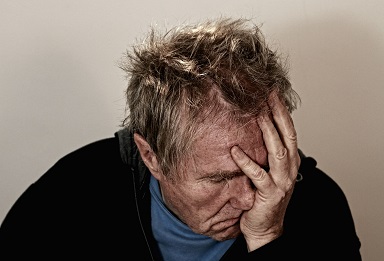Point Of Change Counselling
promoting change that heals
face-to-face, Skype or telephone appointments available

"Sam" had been feeling sad ever since his wife left him. That seemed understandable, given that the loss of his sixteen year marriage had turned his world upside down. But it was now more than two years since the divorce and he was feeling just as lost, lonely and blue. In fact it took him all his will power to get out of bed in the mornings and go through the motions of the day. In the evenings, he had started drinking so that he could get to sleep and could numb the blinding headaches which were now a regular part of his life. The truth was that Sam was no longer in a normal grief cycle - he had crossed the line into depression.
It goes way beyond a sad face and lots of tears. It's important to recognise that the true root of depression is often anger and not just grief or sadness.
In addition to these broad categories, there is a lengthy list of traits which can spring from depression. Everyone experiences some of these at times, but if clusters of these symptoms persist over time, then it is time to seek professional help. There are many websites which can provide a comprehensive list, but in general terms , be on the lookout for low energy, a sense of worthlessness / hopelessness / helplessness, looking back, unexplained anxiety, lack of motivation / concentration / decision-making ability, to name a few.
At Point of Change Counselling, we can help you to distinguish between the internal and external factors which may contribute to your depression, and to work with you to make choices about changing those things which are under your control. We can also support you in learning new ways of thinking and making sense of your specific situation as well as helping you to shift your attention from an inward focus which feeds the pattern of depression. If you are willing, we can also support you in making practical changes to your daily living.
If you need support with a mental health issue, contact Alli at Point Of Change Counselling to make an appointment.